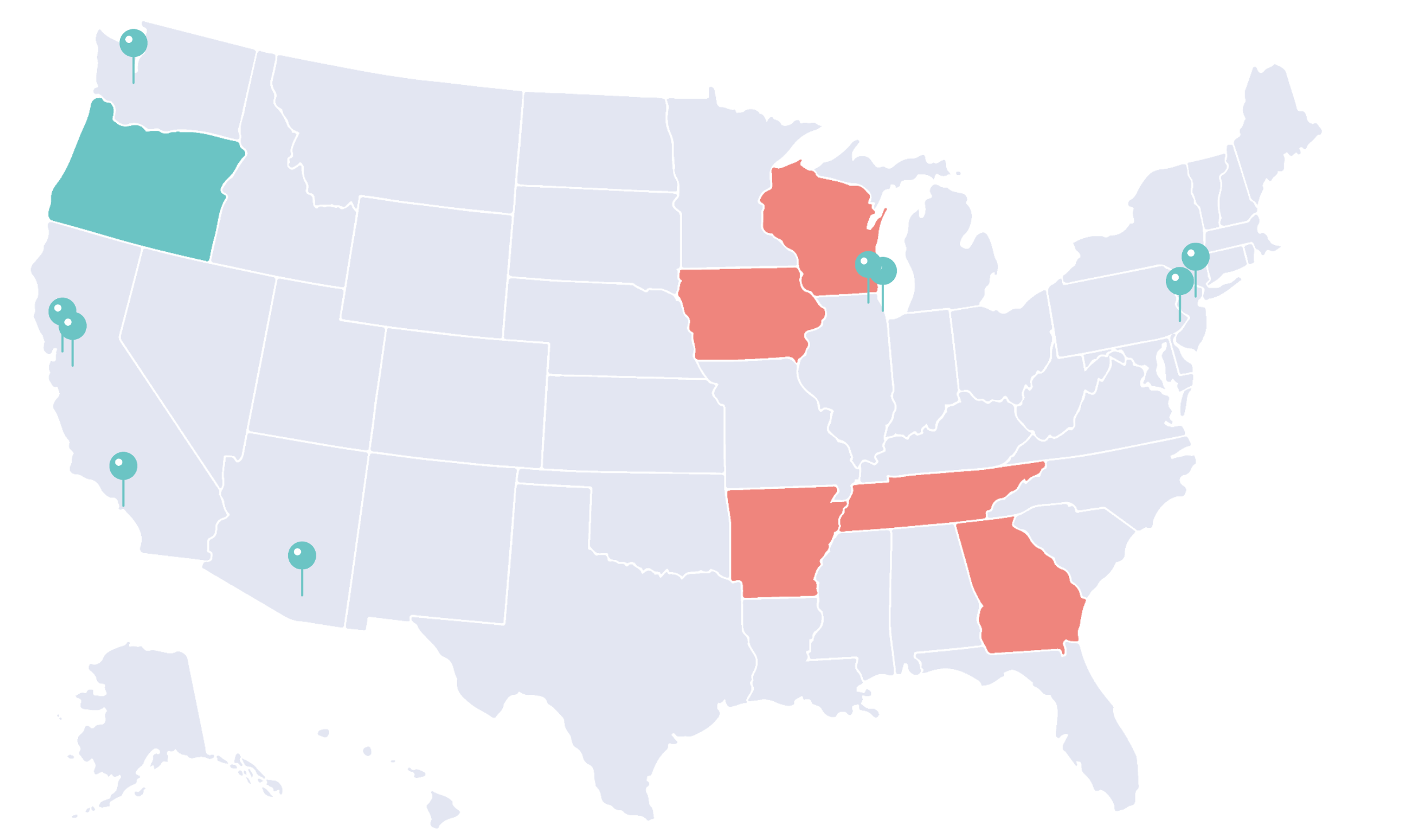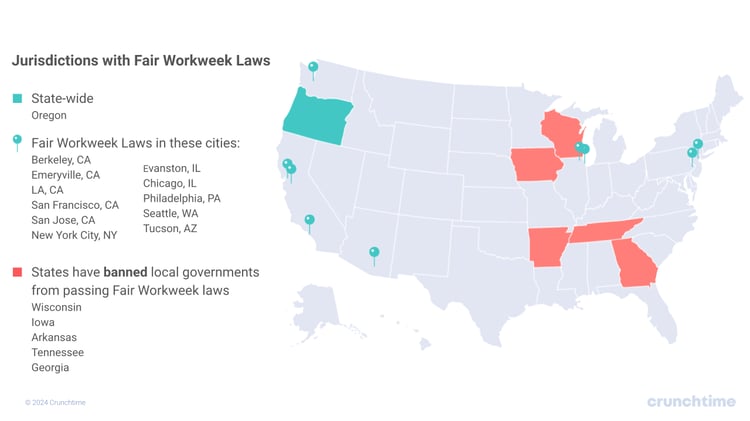
- Home
- Crunchtime Blog
- A History and Overview of Fair Workweek Laws for Restaurants

A History and Overview of Fair Workweek Laws for Restaurants
Labor laws have changed dramatically over the past couple of years for restaurants. From minimum wage increases, to minor laws, to Fair Workweek legislation — it’s more complicated than ever for restaurants to navigate the legal landscape of labor scheduling.
First, what is Fair Workweek and why do we have Fair Workweek laws? At a basic level, Fair Workweek is a set of laws designed by governments to give employees a better work-life balance. The laws ensure that employees can see their schedules well in advance, and when a new employee is hired, they are told what kind of hours they can expect to work from month-to-month. In short, Fair Workweek laws aim to make employee schedules more stable, fair, and transparent.
Generally, these laws, which are also referred to as "Predictive Scheduling," apply to businesses that have more than 100 employees globally, more than 30 locations, and employees who earn less than $29.35 per hour. Restaurants often fall into this category.
One thing to note with all labor laws, especially Fair Workweek, is that the rules vary greatly from state to state and even from city to city. It's interesting that 90% of the rules are the same across the board and that last 10% is what makes everything much more difficult.
Related Read: The Restaurant Operator’s Guide to Fair Workweek
A Bit of History
In 2014, San Francisco lawmakers were on the forefront of this movement, followed by the Big Apple rolling out its own version a few years later in 2017. The document New York City produced was quite detailed, with complex examples, but it was sometimes confusing and it became overwhelming quite quickly. In addition, New York City’s initial version was revised about a year ago, and areas of the law changed again.
The first—and still the only—state to implement statewide Fair Workweek practices was Oregon in 2018. Meanwhile, other large cities have also implemented, including: Philadelphia, Chicago, Seattle, Los Angeles, and more jurisdictions expected to follow suit.
While not an exhaustive list (since laws are constantly changing), restaurants that operate in the following cities or states must abide by Fair Workweek laws:
- San Francisco, CA
- New York City, NY
- Oregon (state-wide)
- Philadelphia, PA
- Chicago, IL
- Seattle, WA
- Euless, TX
- Emeryville, CA
- Los Angeles, CA
- Berkeley, CA (Jan. 1, 2024)
The following jurisdictions are currently considering similar legislation:
- Colorado
- Arizona
- Connecticut
- Hawaii
- Evanston, Illinois
- Maine
- Maryland
- Michigan
However, some states have passed legislation that ban local or state governments from passing Fair Workweek laws:
- Arkansas
- Georgia
- Iowa
- Tennessee
- Wisconsin

It seems clear that Fair Workweek laws are going to keep expanding, and it’s not likely we’ll see one set of rules at the national level. It’s more likely we’ll continue to see states and cities conjure up new rules of their own. So even if a business is not impacted today, it could be in the future, especially if the organization has multi-state growth plans.
Why Should Your Restaurant Focus on Fair Workweek Laws?
Labor law compliance is in the news almost every week lately, especially around minor laws and Fair Workweek. Fast food chains have the most minor law violations. For example, New York City has put through judgments between $5-20 million for large fast food employers. Seattle has fined businesses over $5 million across all employers since its laws were introduced, and Philadelphia has had large settlements as well. Lawmakers are cracking down on violations, and penalties are steep for businesses that fail to comply.
When it comes to Fair Workweek compliance, ultimately, the burden falls on the employer to show that they’re making a good faith effort to abide by the rules. In the event that an employee files a complaint against their employer regarding a possible Fair Workweek violation, the employer is responsible for providing documentation that shows sufficient evidence they complied with all applicable laws. Failure to provide documentation may be assumed that the employer has violated the laws.
By implementing a labor and scheduling solution like Crunchtime, employers can not only demonstrate that they are putting forth a solid effort to follow the laws, they also have audit data available to show proof of compliance. For example, by comparing scheduled shifts to actual shifts or time clock audits, if any changes were made they can show who made the edit and when it was made.
See The Restaurant Operator’s Guide to Fair Workweek in 2023 for the most common requirements that impact restaurants and features they need in their labor and scheduling platform.
Ready to learn more?
Fair Workweek management is one of many Crunchtime features that makes labor scheduling more efficient for restaurants. To learn more about Fair Workweek handling or other features in Crunchtime Labor & Scheduling, request a demo today.
Share this post
Related


Employing Minors in Your Restaurant this Summer? 4 Ways to Maintain Compliance
.jpeg?length=720&name=AdobeStock_350254999%20(1).jpeg)
